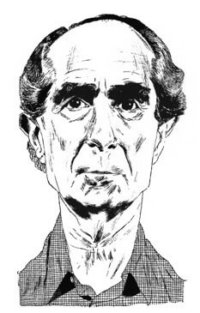What Can Philip Roth Tell Us About Politics Today

What can Philip Roth tell us about politics today? What can the author of The Human Stain, American Pastoral, and The Plot Against America tell us about American political life in this age of Trump? Is Roth’s work merely a fictional account of America’s past? Does his work have nothing to tell us about our present and future?
We believe this not to be the case, as we argue in our book, A Political Companion to Philip Roth. In Roth’s works he directly engaged in the social and political events of twentieth-century America, from the Great Depression to the War on Terror, with his writings revealing the enduring character of this country as one that aspires for perfection but continually is thwarted by politics, prejudices, or people’s poor choices. This aspiration for perfection is pursued by characters like Coleman Silk in The Human Stain, Seymour Levov in American Pastoral, and Ira Ringold in I Married a Communist: all attempt – and fail – to find perfection in American life. These and other characters’ inability to acknowledge the limitations of life and instead adopt the aspirations of perfection that America calls for leads to their ultimate and tragic fates.
We see this aspirational aspect in our politics today, whether in Obama’s call for “hope and change” or Trump’s promise to return us back to an era when America was “great.” Both political promises are perfectionist in nature, something which can never be delivered and, if tried, will eventually fail, leaving an electorate cynical and disengaged from civic life. Roth’s parody of the Nixon’s administration in Our Gang and his counter-factual history in The Plot Against America explores the consequences of perfectionist politics where leaders become crude and corrupt at best and tyrannical and oppressive at worst.
This critique of perfectionist politics perhaps can be best found in The Dying Animal where its protagonist, David Kepesh, is skeptical of an optimistic future of liberal democracy and an ever-expanding global capitalism at the beginning of the twenty-first century. Unlike his compatriots, Kepesh resigns himself to the limitations of what he can understand about the future as well as the past for himself and for America. The myth of American progress is directly questioned here, for there is “no end to history” but rather an open-ended future for a people and their country.
Reading Roth’s novels therefore can provide an antidote to the perfectionist streak that we Americans hold in our political life: he shows us the disastrous consequences of having such views and how we might be able to replace our aspirations for perfection for one of limited but worthwhile achievements. Thus, we should be suspicious of claims unfettered by the past of a “post-racial” America or those that reject the future by making the country “great again.” For, as much as we refuse to admit it, as a country we are still bounded by our past as much as we wish to define ourselves by our future. Reading Philip Roth’s novels shows us the calamitous consequences of ignoring either the past or the future: we need to know both so we, as individuals and a country, can live within the limitations that are inevitably part of life.
Available is the introduction to A Political Companion to Philip Roth with the following chapters: “Serving His Tour as an “Exasperated Liberal and Indignant Citizen”: Philip Roth, a Public Intellectual?”; “The Politics and Literature of Unknowingness: Philip Roth’s Our Gang and The Plot Against America”; and “Four Pathologies and a State of Sanity: Political Philosophy and Philip Roth on the Individual in Society”; also see the introduction to Andy Connolly’s Philip Roth and the American Liberal Tradition and Lee Trepanier’s essay, “The Paradoxes of the Body in Everyman, Nemesis, and The Humbling.”




